
Arthur Neville Chamberlain was a British politician who served as Prime Minister of the United Kingdom from May 1937 to May 1940 and Leader of the Conservative Party from May 1937 to October 1940. He is best known for his foreign policy of appeasement, and in particular for his signing of the Munich Agreement on 30 September 1938, ceding the German-speaking Sudetenland region of Czechoslovakia to Nazi Germany led by Adolf Hitler. Following the invasion of Poland on 1 September 1939, which marked the beginning of the Second World War, Chamberlain announced the declaration of war on Germany two days later and led the United Kingdom through the first eight months of the war until his resignation as prime minister on 10 May 1940.

The Munich Agreement was an agreement reached in Munich on 30 September 1938, by Nazi Germany, Great Britain, the French Republic, and Fascist Italy. The agreement provided for the German annexation of part of Czechoslovakia called the Sudetenland, where more than three million people, mainly ethnic Germans, lived. The pact is also known in some areas as the Munich Betrayal, because of a previous 1924 alliance agreement and a 1925 military pact between France and the Czechoslovak Republic.
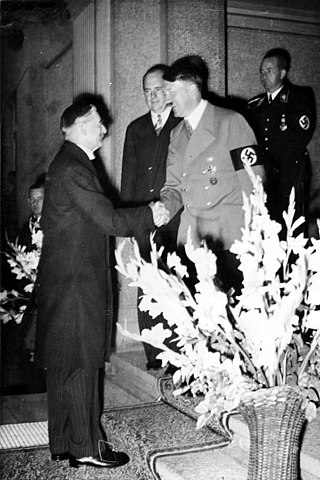
Appeasement, in an international context, is a diplomatic negotiation policy of making political, material, or territorial concessions to an aggressive power to avoid conflict. The term is most often applied to the foreign policy of the British governments of Prime Ministers Ramsay MacDonald, Stanley Baldwin and Neville Chamberlain towards Nazi Germany and Fascist Italy between 1935 and 1939. Under British pressure, appeasement of Nazism and Fascism also played a role in French foreign policy of the period but was always much less popular there than in the United Kingdom.

Edward Frederick Lindley Wood, 1st Earl of Halifax,, known as the Lord Irwin from 1925 until 1934 and the Viscount Halifax from 1934 until 1944, was a senior British Conservative politician of the 1930s. He held several senior ministerial posts during this time, most notably those of Viceroy of India from 1926 to 1931 and of Foreign Secretary between 1938 and 1940. He was one of the architects of the policy of appeasement of Adolf Hitler in 1936–1938, working closely with Prime Minister Neville Chamberlain. After Kristallnacht on 9–10 November 1938 and the German occupation of Czechoslovakia in March 1939, he was one of those who pushed for a new policy of attempting to deter further German aggression by promising to go to war to defend Poland.

Charles Vincent Massey was a Canadian diplomat who served as Governor General of Canada, the 18th since Confederation. Massey was the first governor general of Canada who was born in Canada.

Sir Richard Stafford Cripps was a British Labour Party politician, barrister, and diplomat.
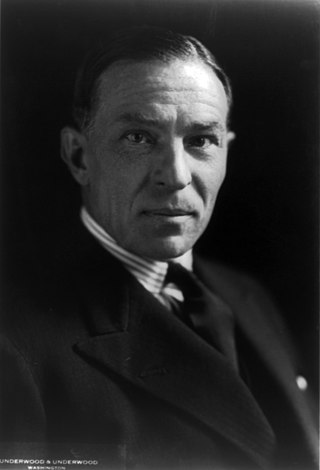
Robert Gilbert Vansittart, 1st Baron Vansittart,, known as Sir Robert Vansittart between 1929 and 1941, was a senior British diplomat in the period before and during the Second World War. He was Principal Private Secretary to the Prime Minister from 1928 to 1930 and Permanent Under-Secretary at the Foreign Office from 1930 to 1938 and later served as Chief Diplomatic Adviser to the British Government. He is best remembered for his opposition to appeasement and his strong stance against Germany during and after the Second World War. Vansittart was also a published poet, novelist and playwright.
Guilty Men is a British polemical book written under the pseudonym "Cato" that was published in July 1940, after the failure of British forces to prevent the defeat and occupation of Norway and France by Nazi Germany. It attacked fifteen public figures for their failed policies towards Germany and for their failure to re-equip the British armed forces. In denouncing appeasement, it defined the policy as the "deliberate surrender of small nations in the face of Hitler's blatant bullying". A classic denunciation of the former government's policy, it shaped popular and scholarly thinking for the next two decades.
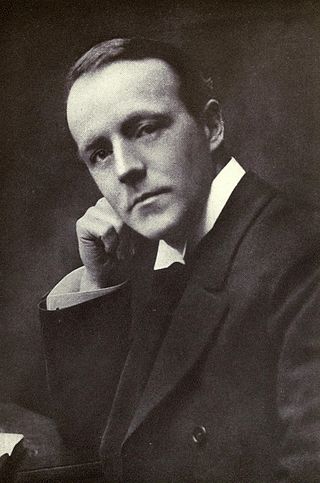
Walter Runciman, 1st Viscount Runciman of Doxford, was a prominent Liberal and later National Liberal politician in the United Kingdom. His 1938 diplomatic mission to Czechoslovakia was key to the enactment of the British policy of appeasement of Nazi Germany preceding the Second World War.

Thomas Walker Hobart Inskip, 1st Viscount Caldecote, was a British politician who served in many legal posts, culminating in serving as Lord Chancellor from 1939 until 1940. Despite legal posts dominating his career for all but four years, he is most prominently remembered for serving as Minister for Coordination of Defence from 1936 until 1939.

Robert Spear Hudson, 1st Viscount Hudson, was a British Conservative Party politician who held a number of ministerial posts during World War II.
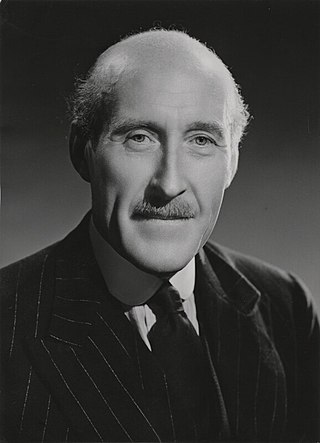
Harry Frederick Comfort Crookshank, 1st Viscount Crookshank,, was a British Conservative politician. He was Minister of Health between 1951 and 1952 and Leader of the House of Commons between 1951 and 1955.

Sir Horace John Wilson, was a senior British government official who had a key role, as Head of the Home Civil Service, with government of Prime Minister Neville Chamberlain in the appeasement period just prior to the Second World War.

Lieutenant General Sir Frank Noel Mason-MacFarlane, was a senior British Army officer, administrator and politician who served as Governor of Gibraltar during the Second World War.
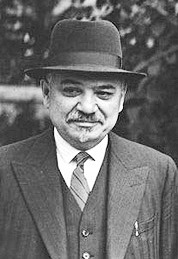
Ivan Mikhailovich Maisky was a Soviet diplomat, historian and politician who served as the Soviet Union's ambassador to the United Kingdom from 1932 to 1943, including much of the period of the Second World War.
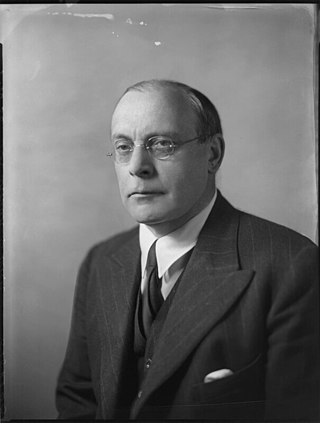
James Arthur Salter, 1st Baron Salter, was a British civil servant, politician, and academic who was a significant politician behind the concept of European political union, often in conjunction with his close friend and colleague Jean Monnet.

Sir Nevile Meyrick Henderson was a British diplomat who served as the ambassador of the United Kingdom to Germany from 1937 to 1939.
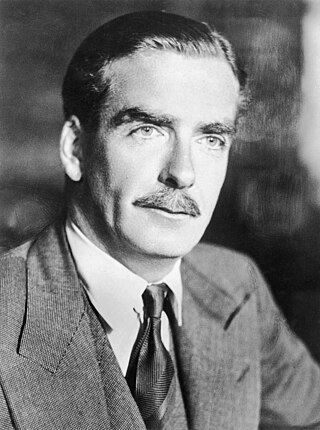
Robert Anthony Eden, 1st Earl of Avon, was a British politician who served as Prime Minister of the United Kingdom and Leader of the Conservative Party from 1955 until his resignation in 1957.

The European foreign policy of the Chamberlain ministry from 1937 to 1940 was based on British Prime Minister Neville Chamberlain's commitment to "peace for our time" by pursuing a policy of appeasement and containment towards Nazi Germany and by increasing the strength of Britain's armed forces until, in September 1939, he delivered an ultimatum over the invasion of Poland, which was followed by a declaration of war against Germany.
A Total and Unmitigated Defeat was a speech by Winston Churchill in the House of Commons at Westminster on Wednesday, 5 October 1938, the third day of the Munich Agreement debate. Signed five days earlier by Prime Minister Neville Chamberlain, the agreement met the demands of Nazi Germany in respect of the Czechoslovak region of Sudetenland.

















